“We look forward to clearing our names”: MPs break silence on ICAC probe
Three Liberal MPs have confirmed they are the focus of an ICAC corruption investigation, breaking their silence to “deny any allegations of criminality” as the crisis-hit party-room met today.
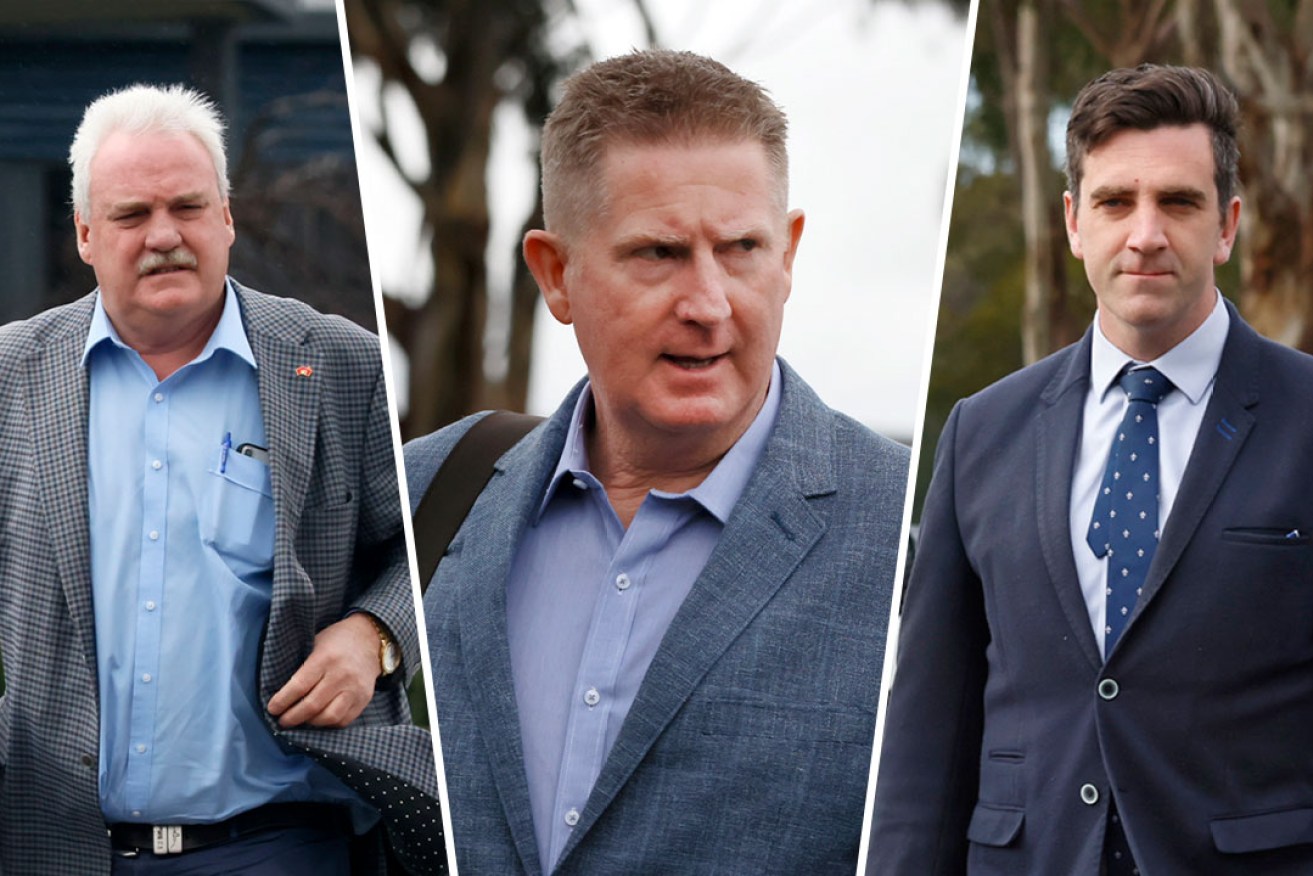
Adrian Pederick, Terry Stephens and Fraser Ellis arriving at last week's party-room gathering in Hahndorf. Photos: Tony Lewis / InDaily
In a joint statement, outgoing Upper House president Terry Stephens and backbench MPs Adrian Pederick and Fraser Ellis confirmed they had each received a notice from former Independent Commissioner Against Corruption Bruce Lander “requiring us to produce documents” for the purpose of an investigation into “a potential issue of corruption in public administration in respect of the Country Members Accommodation Allowance”.
The entitlements scandal has already prompted the resignations of frontbenchers Stephan Knoll and Tim Whetstone, seen Stephens step down as Legislative Council presiding member and Pederick resign as Government whip.
It’s also prompted a broader parliamentary shake-up, with Speaker Vincent Tarzia elevated to the ministry, with the Liberal party-room meeting at a Hahndorf retreat today to elect Josh Teague and Jing Lee as its nominees to replace both Tarzia and Stephens.
In their statement, the three MPs “each vehemently deny any allegations of criminality”, insisting: “We will fully cooperate with any lawful requests, as the public rightly expect us to do.”
However, they confirm they have invoked parliamentary privilege with respect to some of the documents requested – an issue that will be resolved when parliament resumes next week.
“Contrary to what has been publicly suggested, several weeks ago we advised the former Commissioner that we wished to cooperate with his investigation to the extent to which we were able to do so, consistent with the maintenance of parliamentary privilege as expressly provided for in the ICAC Act,” the three MPs said.
“The Notices required production of documents evidencing communications and interactions with our constituents about what is happening in government, including the Parliament.
“The requirement was extremely broad and extended to any documents meeting the category of evidence of the performance of our parliamentary duties. Self evidently, the requirement captured information and documents that would ordinarily be kept confidential and protected by parliamentary privilege.”
They said it “expressly included documents such as diary entries and records of appointments”, which extended to notes of meetings.
“The ICAC Act expressly preserves parliamentary privilege,” the statement reads.
“It expressly excludes the ICAC from evaluating the practices, policies and procedures of a House of Parliament and from giving a direction to a House of Parliament or the Joint Parliamentary Service Committee in relation to a matter concerning a Member of Parliament and other public officers, including staff.”
They said that provision noted it was “extremely important that constituents are free to contact members of parliament and their staff in the knowledge that their disclosures and conversations will be treated confidentially”.
They acknowledged “that there were aspects of the former Commissioner’s investigation that are unobjectionable, and with which we would comply”.
“At no stage have we ever sought to hide behind parliamentary privilege or to frustrate the former Commissioner’s investigation, as has been suggested,” the statement reads.
“None of us has actually asserted parliamentary privilege… there is a respectable argument that members of parliament should approach the Parliament before they respond to coercive powers, to allow Parliament to have the opportunity to rule on parliamentary privilege.
“That is what we have sought to do.”
They insisted that Lander had “agreed that this was an appropriate course for us to take”, and opted to “adjourn his investigation until after the Parliament had resumed and discussed this issue, notwithstanding that that would mean that the matter would need to be investigated by his successor”, former Supreme Court justice Ann Vanstone, who began her seven-year tenure this week.
“Most of all, we look forward to clearing our names and putting the stress and distress of this investigation behind us,” they said.
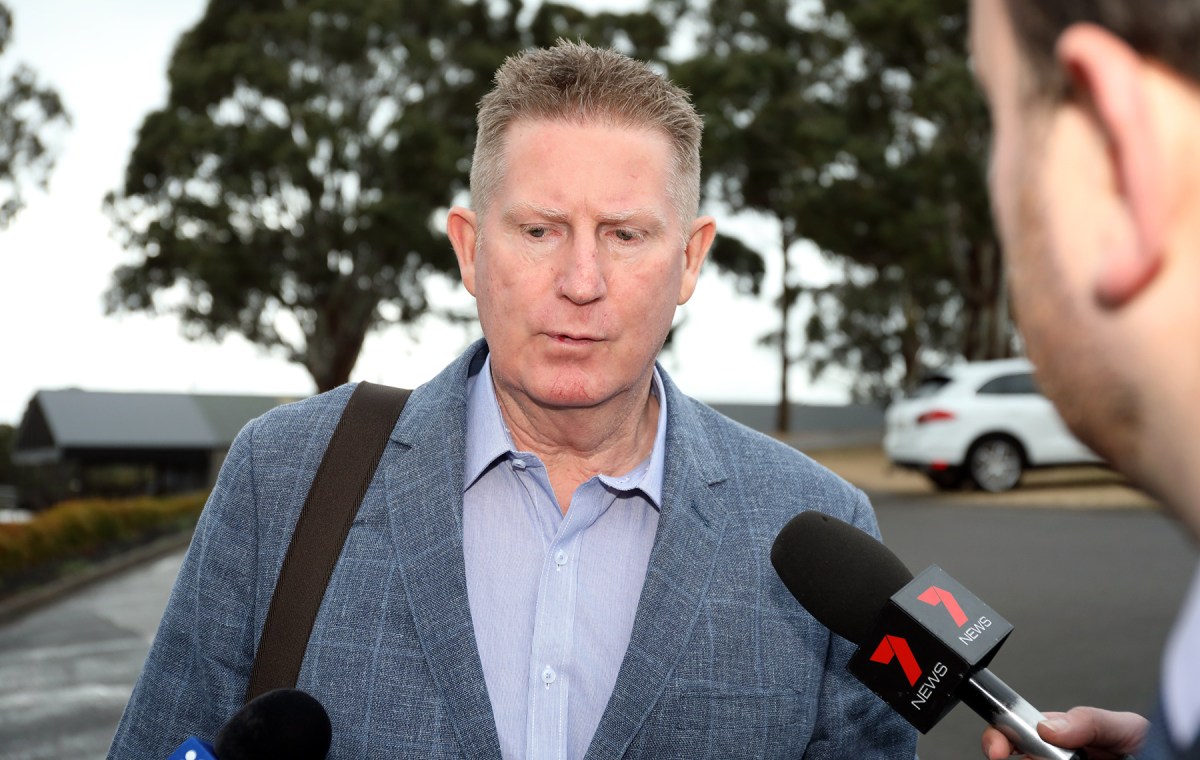
Terry Stephens arriving today. Photo: Tony Lewis / InDaily
The issue was reignited this week when Lander told InDaily that he was “investigating corruption” in relation to the Country Members Allowance probe, “and corruption is criminal conduct”.
He also noted that the parliamentary privilege gambit was “probably” a gambit to delay his inquiry until he had left office, before adding: “They may genuinely think this should be a matter of privilege, or that parliament ought to have the opportunity of considering it in advance of providing me with documents… but it would be convenient, it is convenient, that that happens after I’ve left office.”
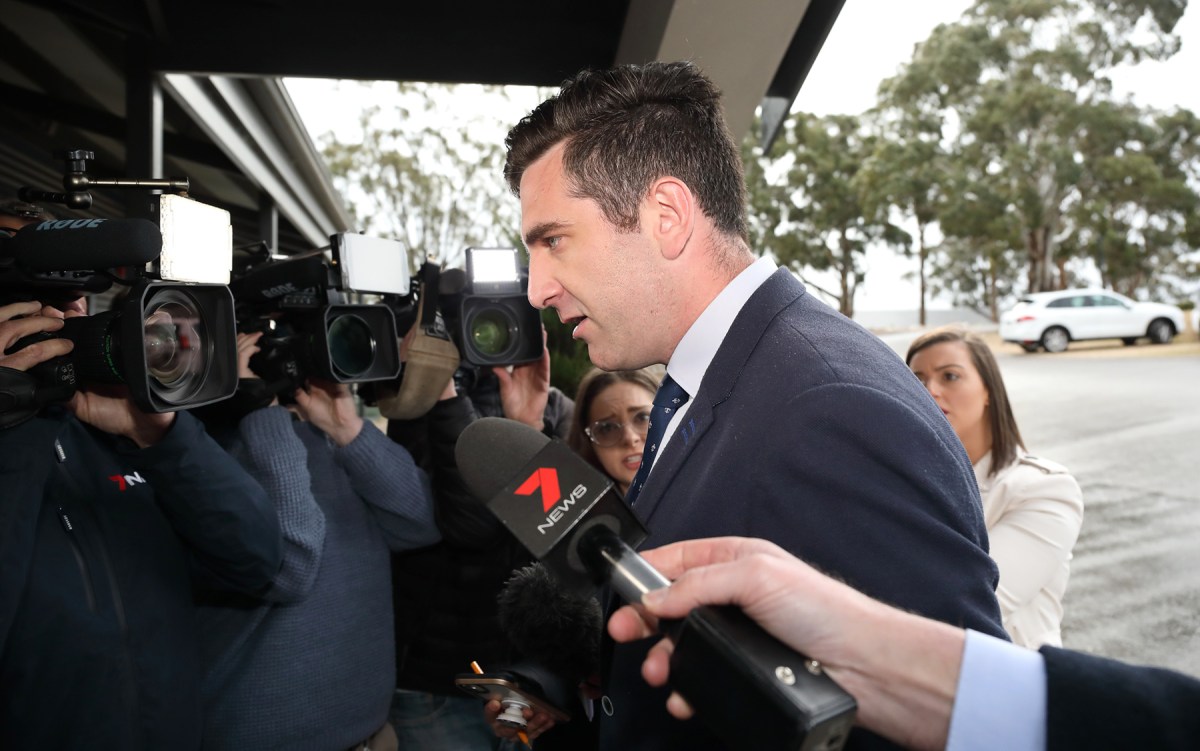
Ellis entering the meeting. Photo: Tony Lewis / InDaily
The statement from Stephens, Pederick and Ellis – who has already repaid more than $40,000 in entitlements claimed since his election in 2018 – argue “all members understand that [privilege] is a core function of a member of parliament to be free to advocate on behalf of their constituents without risk that the identity and subject matter of those communications will become known to the Executive”.
They note that former Labor minister Leesa Vlahos sought to invoke privilege in relation to her conduct during Lander’s Oakden 2017 investigation, while current Opposition frontbencher Tom Koutsantonis passionately defended its use in ICAC inquiries just last year, telling parliament: “The ICAC has no power in this parliament or the Legislative Council because of privilege and the ancient rites and customs that we have adopted from the mother parliament, as it should be… the ICAC has no ability to infringe on privilege”.
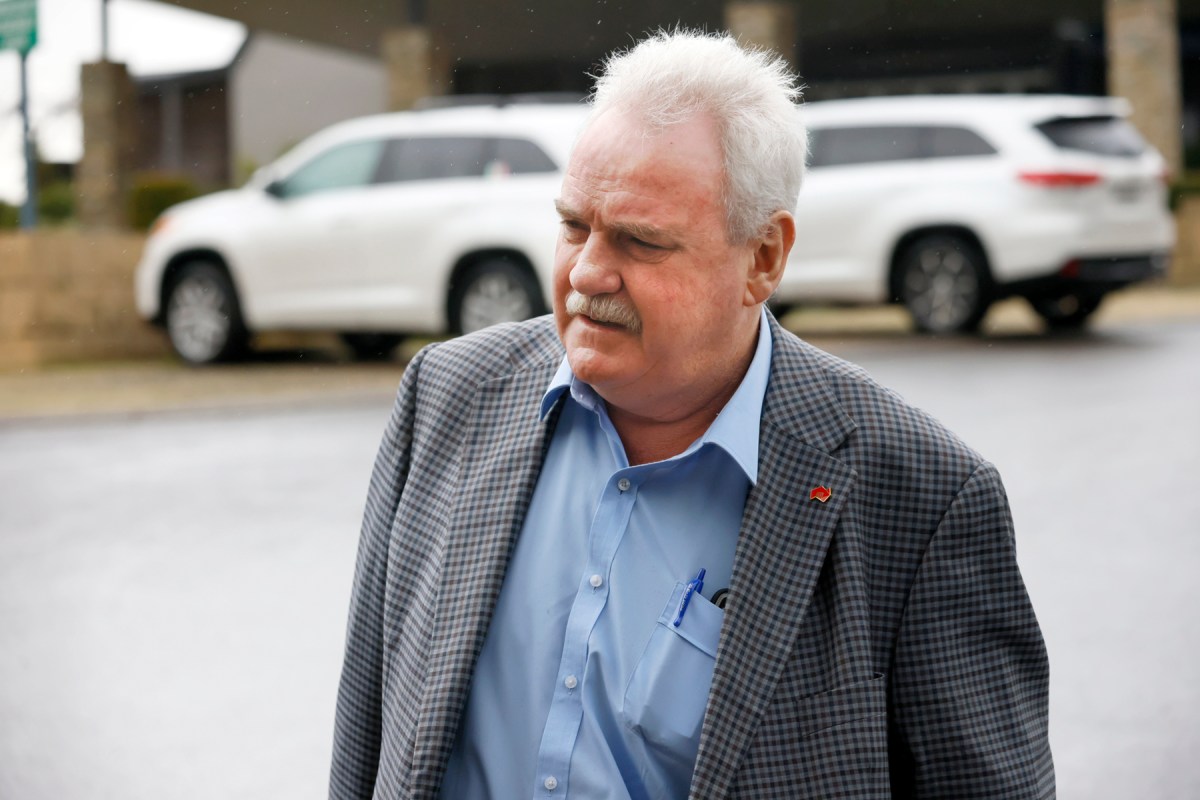
Adrian Pederick today. Photo: Tony Lewis / InDaily
They argued that “corruption investigations… are intended to be carried out in private”, saying it was “surprising and disappointing that, in this case, this investigation has been made the subject of intense media commentary via the making of public statements”.
“We have therefore been in an invidious position with the sustained public reporting of this matter,” they said.
Arriving at the party-room retreat this morning, Pederick told media “we don’t think there’s any criminality at all… it’s interesting how it’s been portrayed”.
Stephens told reporters he was “certainly not hiding behind anything” and was “looking forward to a speedy resolution”, while Ellis said he had “nothing further to add” to the written statement.
But not all their colleagues backed their stance.
Backbencher Steve Murray, asked if he agreed privilege could be invoked against an ICAC inquiry, said: “No, I don’t.”
“We’ve got a responsibility to our constituents and SA – doing the right thing by them is what’s important,” he said.
“I’ll be encouraging everybody to try and do the right thing.”

Stephan Knoll this morning. Photo: Tony Lewis / InDaily
Knoll told media today he had “not made public comment… given the nature of the investigation” but confirmed: “I’ve co-operated with the investigation, and worked with the Commissioner in the way he’s asked.”
Knoll’s future has been a matter of conjecture since his ministerial demise, with his seat of Schubert being targeted by Labor after a boundary redistribution.
He was equivocal today, saying: “My intention is to run at the next election [but] I think it’s a bit premature here, given the boundaries are only in draft.”
“I’m committed to my electorate,” he said.
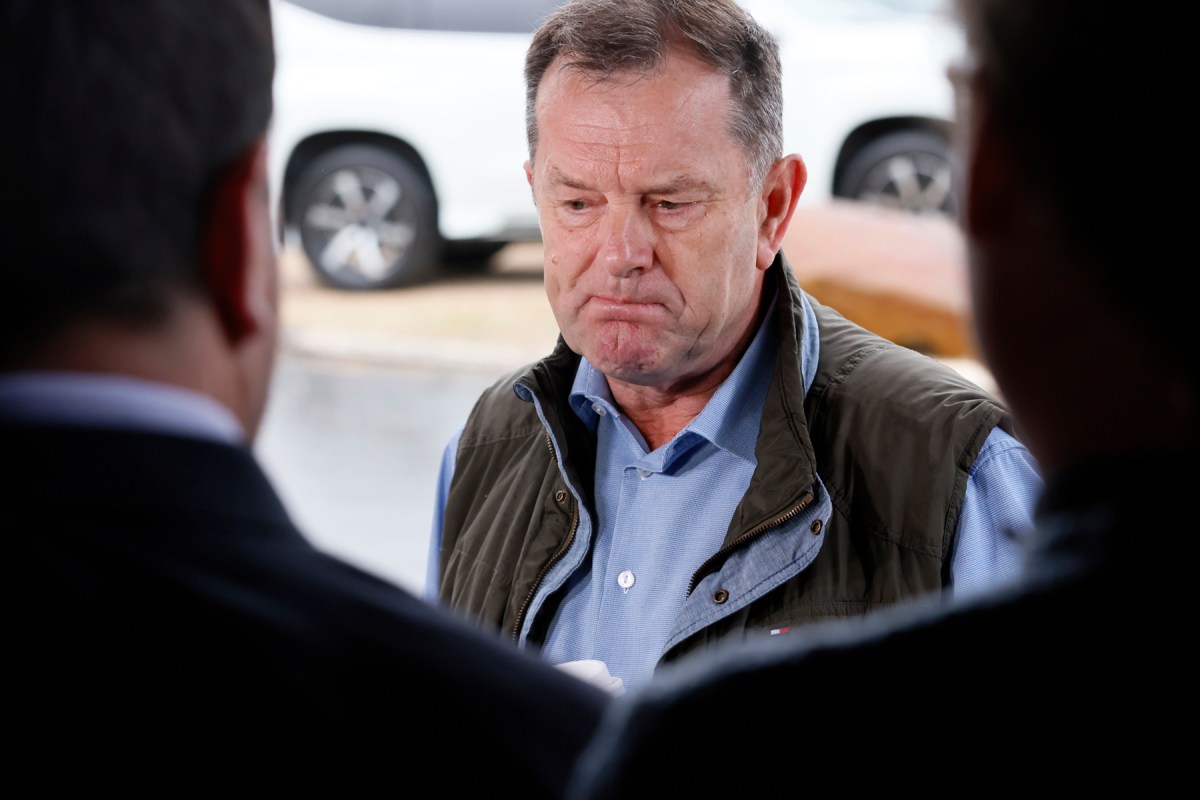
Tim Whetstone. Photo: Tony Lewis / InDaily
Whetstone told reporters he had “made it very clear I won’t be using parliamentary privilege” before declaring: “This is a trial by media at the moment.”
He accused Lander of taking a “parting swipe on the judicial system” by making his public comments.
He said he was “not aware” if he was the subject of an investigation.
Asked if the ongoing saga was a bad look for the Liberal Party, Whetstone said: “I don’t think it’s a bad look for the party – it’s a bad look for the parliament.”
“It’s been a huge distraction, and it’s driven by those that are throwing stones in glass houses,” he said, arguing Labor MPs had “not had the scrutiny my colleagues and myself are” during ICAC inquiries into Gillman and Oakden.
“We’re still waiting to see what the finding of the investigation into the Country Members Allowance is,” he noted.
“I’ve apologised not only to the people of SA and the parliament but to the people that elected me in Chaffey.”
Fellow country-based MP Nick McBride said he “won’t be using any parliamentary privilege but I can’t speak for my colleagues”, while Flinders MP Peter Treloar said “I’ve cooperated with requests and I’ll continue to do so”.
Frontbencher Dan van Holst Pellekaan said: “I’ve cooperated with everything the ICAC and Office for Public Integrity have asked.”
Next week’s parliamentary debates will be overseen by new presiding members, with Marshall-backed Jing Lee late today defeating John Dawkins 7 votes to two for the party’s nomination for Upper house president..
Dawkin has previously not ruled out nominating even without his party’s endorsement. He last night wrote to his colleagues confirming today’s candidacy and insisting: “I have always championed the integrity of our Parliament as a democratic institution and the cornerstone of accountable, transparent government in our state.”
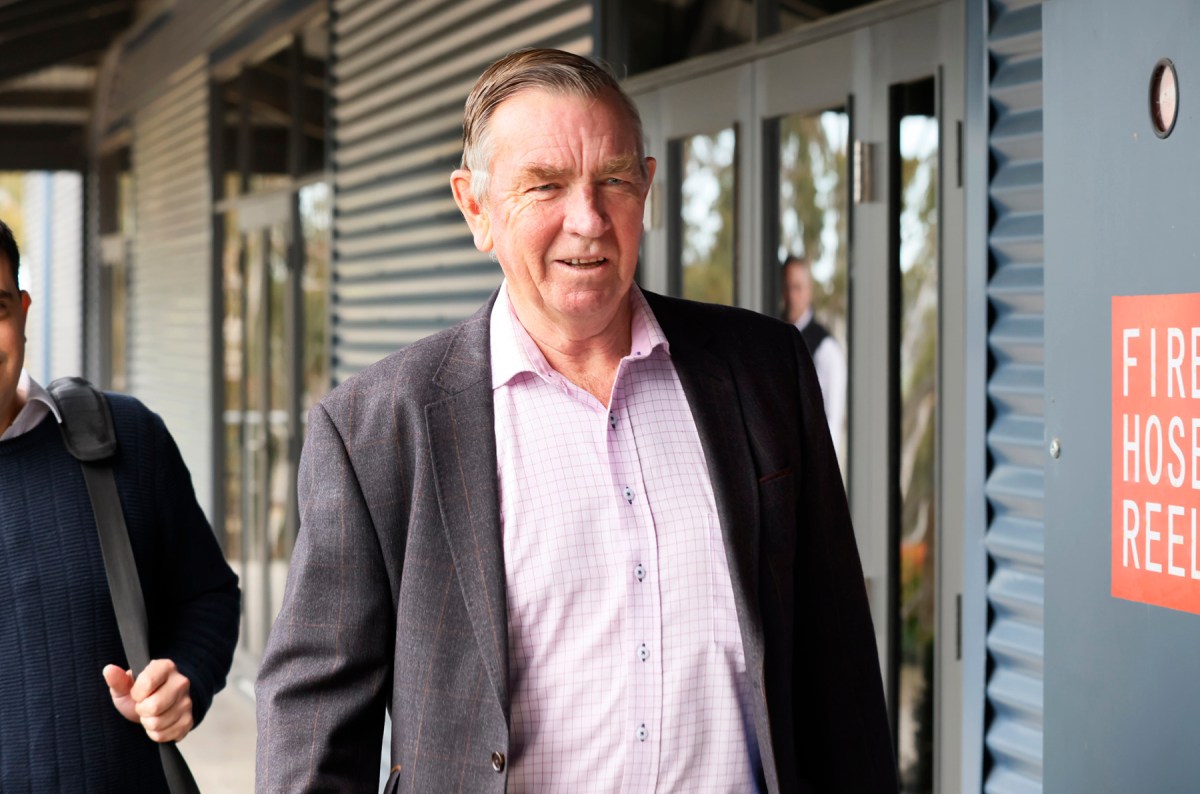
Liberal MLC John Dawkins arrives at the meeting. Photo: Tony Lewis / InDaily
He said he had “demonstrated the importance I place in upholding the standing of the Upper House in a well-functioning, balanced bi-cameral system [and] would continue to demonstrate these values if elected as President”.
“I offer myself as a candidate for President with proven capacity and extensive, earned experience in the President’s Chair [as deputy president] and as someone who can provide stable tenure in the role for the remainder of the current term of Parliament,” he wrote.
Asked before the meeting if she expected to snare the nomination, Lee told reporters: “That’s for the party-room to decide.”
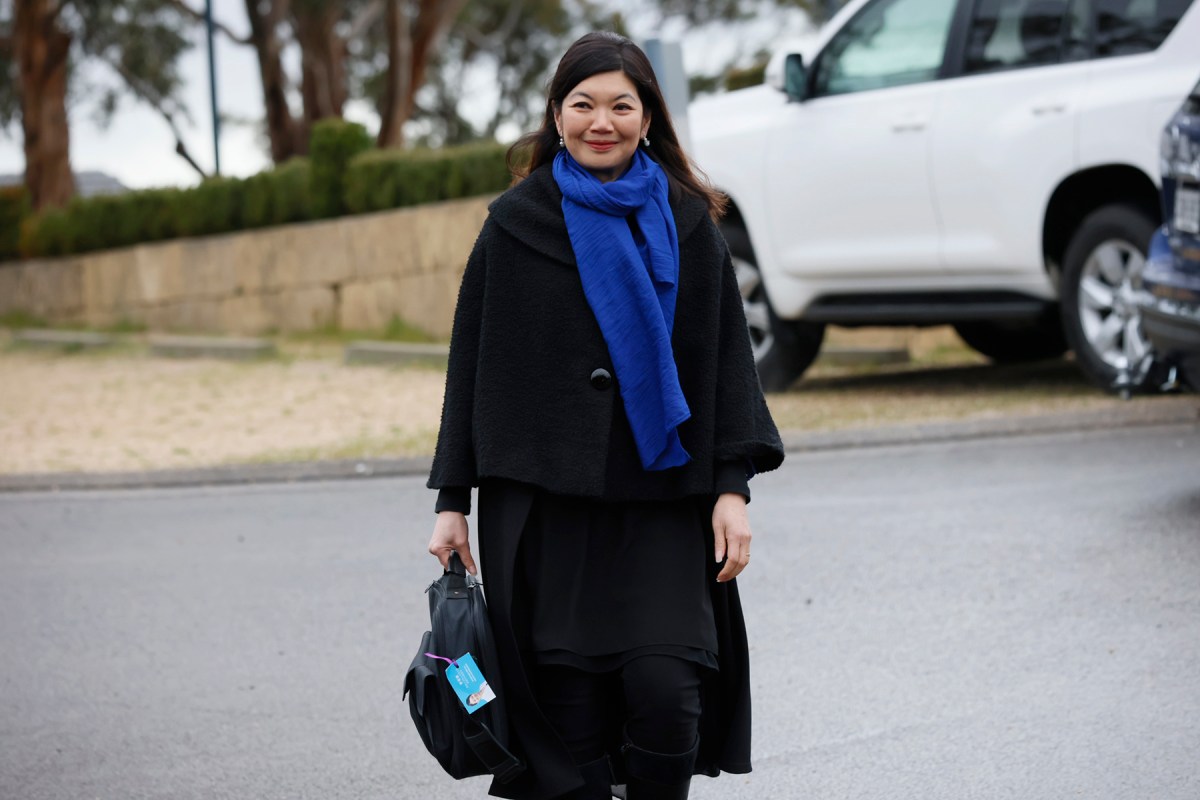
Jing Lee. Photo: Tony Lewis / InDaily
First-term Heysen MP Josh Teague won party backing late today for the Speakership, but did not comment before the meeting.
In a break with convention, Independent Frances Bedford has revealed she will challenge the Government’s pick for the role – with Opposition and crossbench backing.
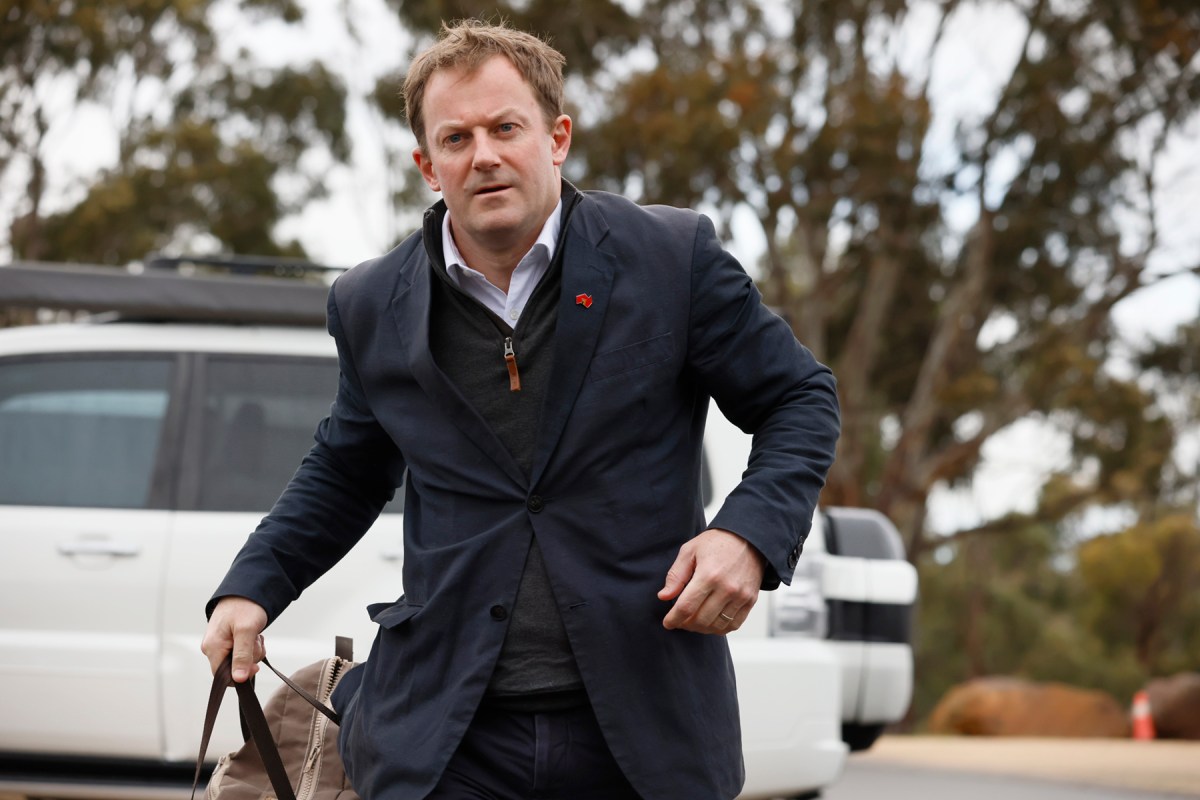
Josh Teague. Photo: Tony Lewis / InDaily
The Liberal meeting was hijacked by the Opposition, who erected a party-funded roadside banner highlighting the Government’s woes.
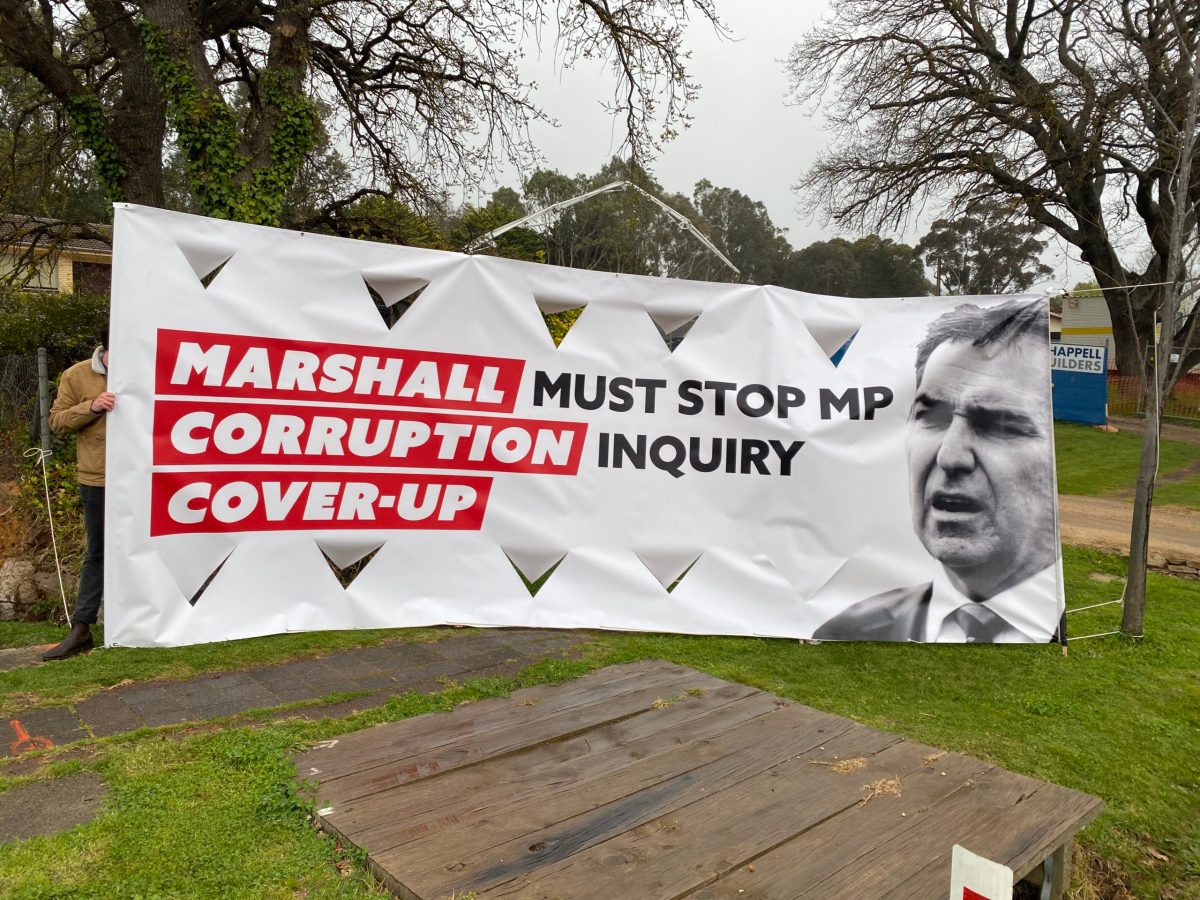
Premier Steven Marshall yesterday said privilege should not be a “blanket shield” against an ICAC inquiry, saying today that “the statement shows they’re not seeking to do that”.
“We do want to preserve parliamentary privilege as a principle,” he said.
Marshall has previously insisted it would be inappropriate for him to ask individual members whether they were the subject of an investigation.
Labor’s Tom Koutsantonis told reporters today: “The Premier now has no excuse – he knows who the three individuals are.”
“He has the party-room in front of him – he can instruct them all that any one of them who doesn’t comply with the lawful instruction of ICAC is out of the party.”
“He knows who they are – he can’t hide behind that any more,” he said.
“You can’t withhold information from a criminal investigation under the guise of parliamentary privilege.”




